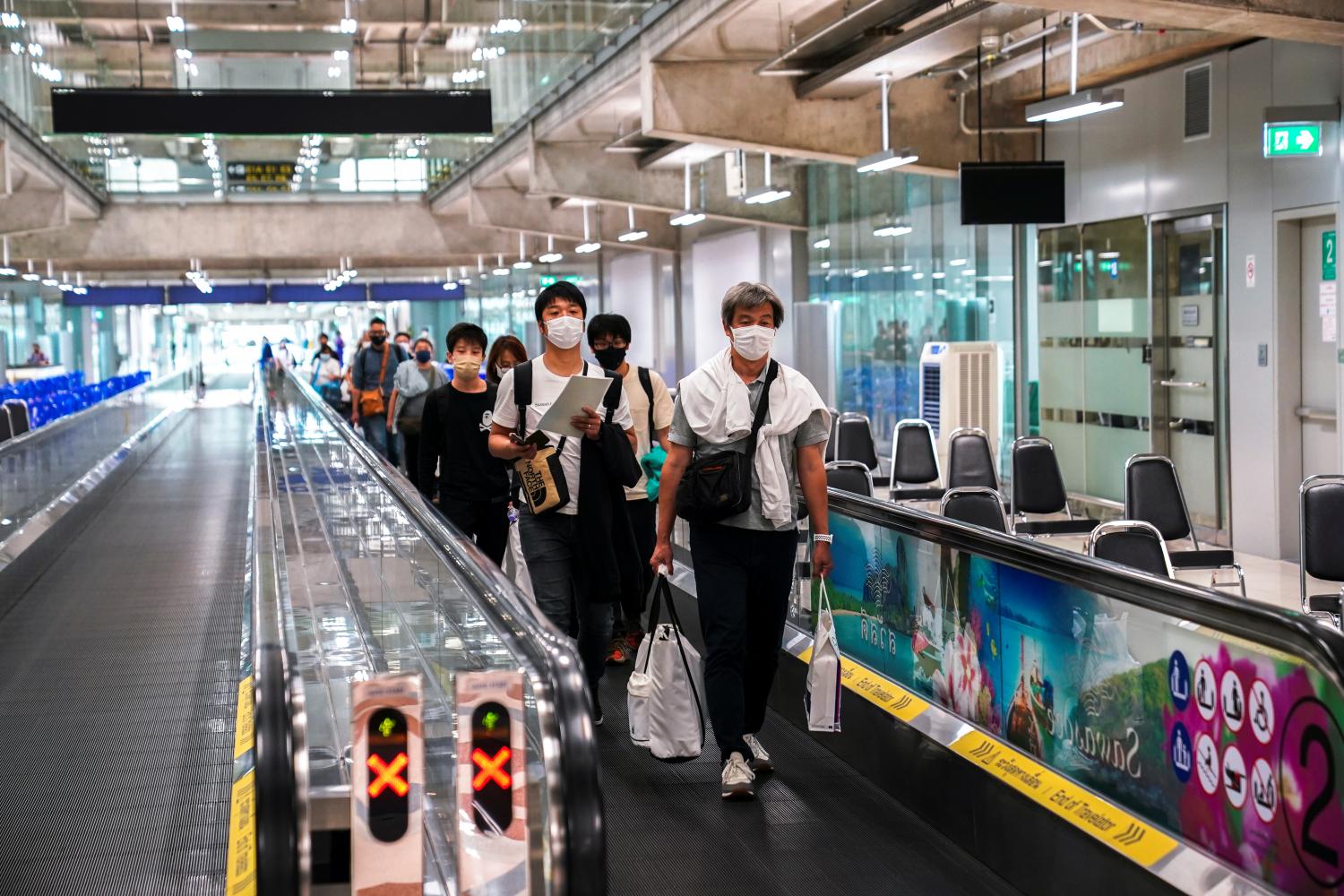
The country's reopening on Nov 1 marked the first step towards rebuilding the battered tourism industry, but the process will likely take several years as international demand is still sluggish and a new Covid variant just emerged.
According to the Department of Disease Control, Thailand had 133,061 arrivals from Nov 1-30, far below the pre-pandemic level of around 3 million tourists per month.
Phangnga didn't see a spike in tourist numbers during country's reopening, but operators are hoping for better momentum in the first two months of next year as forward bookings have already reached 30%, said Pongsakorn Ketprapakorn, president of the Tourism Council of Phangnga.
Of the 12,000 available rooms in the province, there is an occupancy rate of 20% this month, up from 10% in November, mostly driven by local guests, who account for 60-70%.
He said most of the 25,000 registered employees under the Social Security system lost their jobs during the outbreak, but 5,000 workers were rehired last month. Employment in the sector for December is expected to total 15,000 workers.
"Hoteliers reopening acknowledge they will not make a profit at this point, but together we can lift the travel mood for the whole destination," Mr Pongsakorn said.
The situation remains volatile for key markets such as Germany and the Scandinavian countries, which could face another lockdown, leading operators to prepare for uncertainty, he said.
TOURISM CONNECTIVITY
Mr Pongsakorn said Russian operators cannot charter flights because of obstacles for air travel between Thailand and Russia.
The government should work with Russian authorities on this issue as Russian tourists have shifted to other destinations, such as Turkey and the Maldives, he said.
If air travel resumes, at least one flight or 300 passengers per day will visit the province during the peak season on the Andaman coast, said Mr Pongsakorn.
Charintip Tiyaphorn, president of the Tourism Council of Krabi, said the occupancy rate in November remained flat at 20%, but sentiment is improving for the festive season with more direct flights to Krabi this month. Average occupancy is projected to improve to 40-50%, she said.
Finnair started bringing long-stay tourists to Krabi from Dec 1, and plans to offer around 20 flights in December after the third phase of the airport terminal expansion is completed.
Ms Charintip said travel agents would like hotels in Krabi to offer special deals to attract demand and reduce costs for Finnair, which plans to operate more flights to the province until next March.
Tourism operators in Krabi are also waiting for scheduled flights from Singapore and Malaysia to materialise, which were previously set for Oct 31, but were postponed after outbreaks in those countries.
La-Iad Bungsrithong, president of the Thai Hotels Association's northern chapter, said Chiang Mai will have to wait for tourists connecting from Phuket or Bangkok because there are no direct international flights to the province.
She said if Scoot, a Singaporean low-cost carrier, can start flying from Singapore to Chiang Mai around mid-December, the convenience of a direct flight should attract tourists.
DOMESTIC FOCUS
With foreign demand sluggish, tourism operators are dependent on the domestic market, particularly meetings and seminars by state agencies.
"The government should add 1 million room nights to 'We Travel Together', the hotel subsidy scheme for tourists, and extend the campaign until the end of April to increase domestic trips during the high season," Mrs La-Iad said.
Half of the 60,000 rooms available in Chiang Mai are open, up from 20-30% in July-August, as they want to reap the benefits of the travel scheme. However, the employment rate remains low because of the lack of foreign tourists, she said.
Average occupancy in the city centre stood at 40% in November, but hill hotels in Mon Cham, Mae On and Samoeng, which are popular among Thais, tallied 50-60% occupancy and are fully booked during weekends thanks to the cold weather, said Mrs La-Iad.
Karun Suttharomn, acting president of the Tourism Council of Phetchaburi, said domestic tourists were the key market lifting the occupancy rate to 70-80%, while foreign tourists opted for Cha-am as a second choice after visiting major provinces.